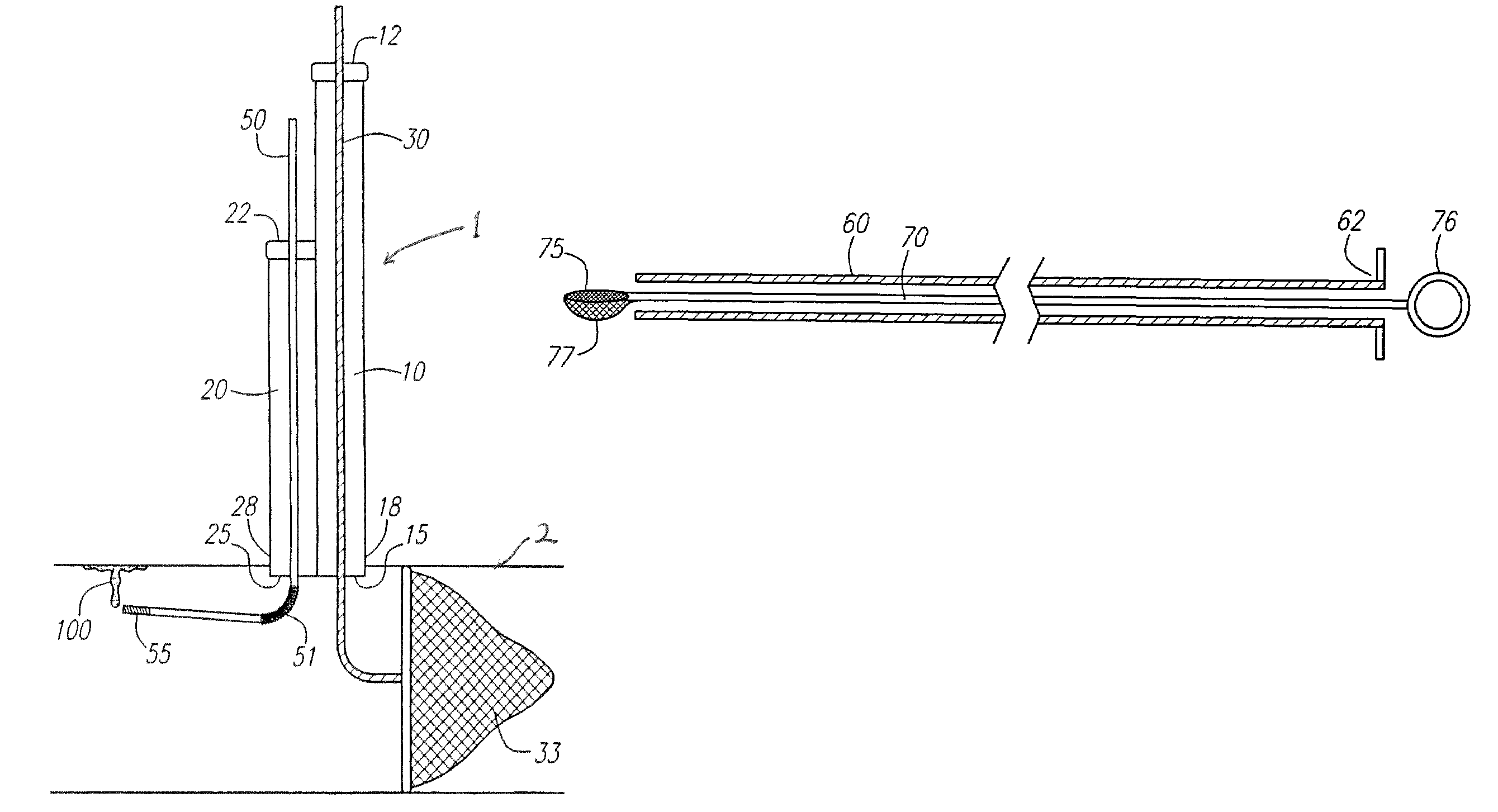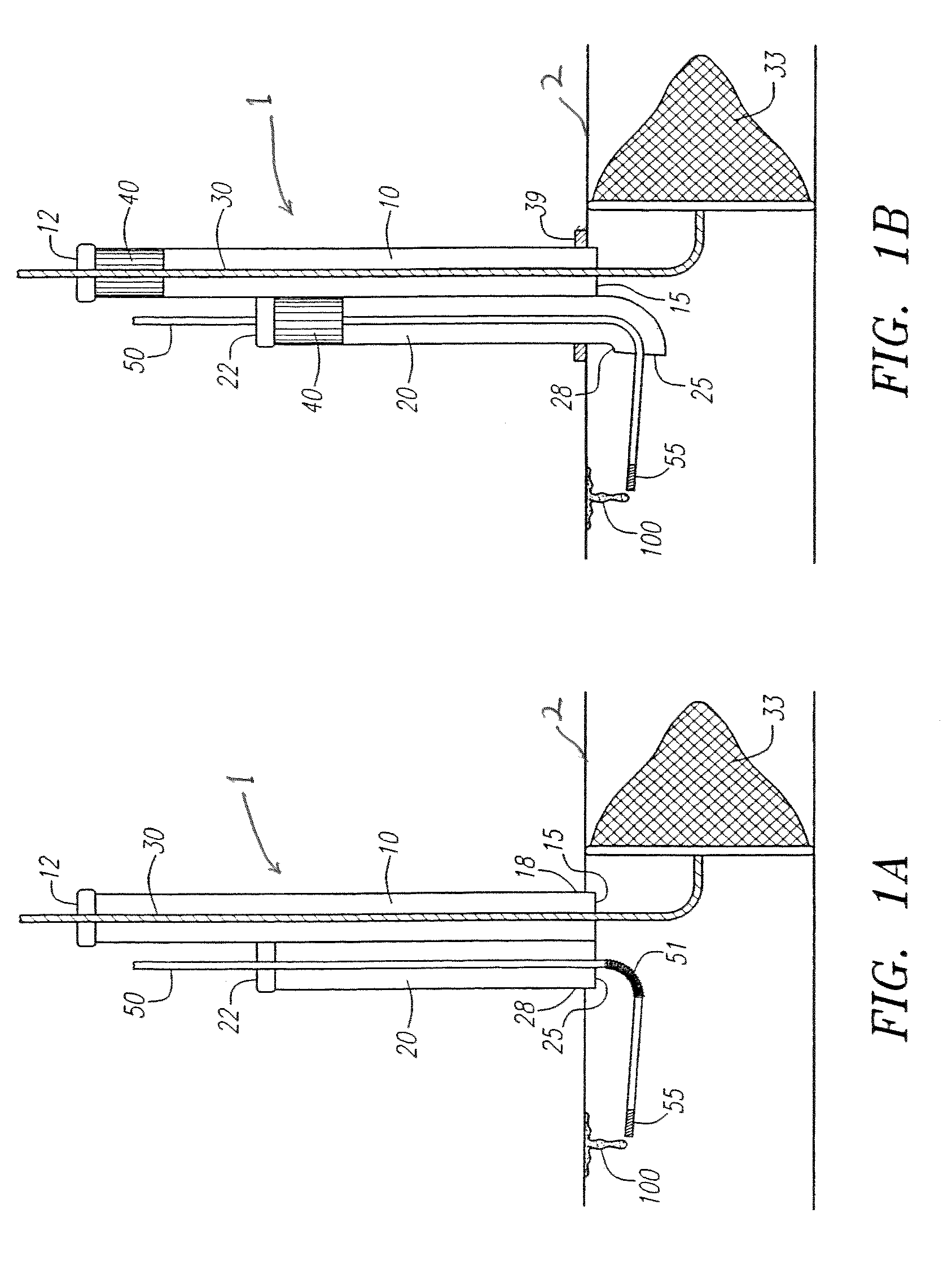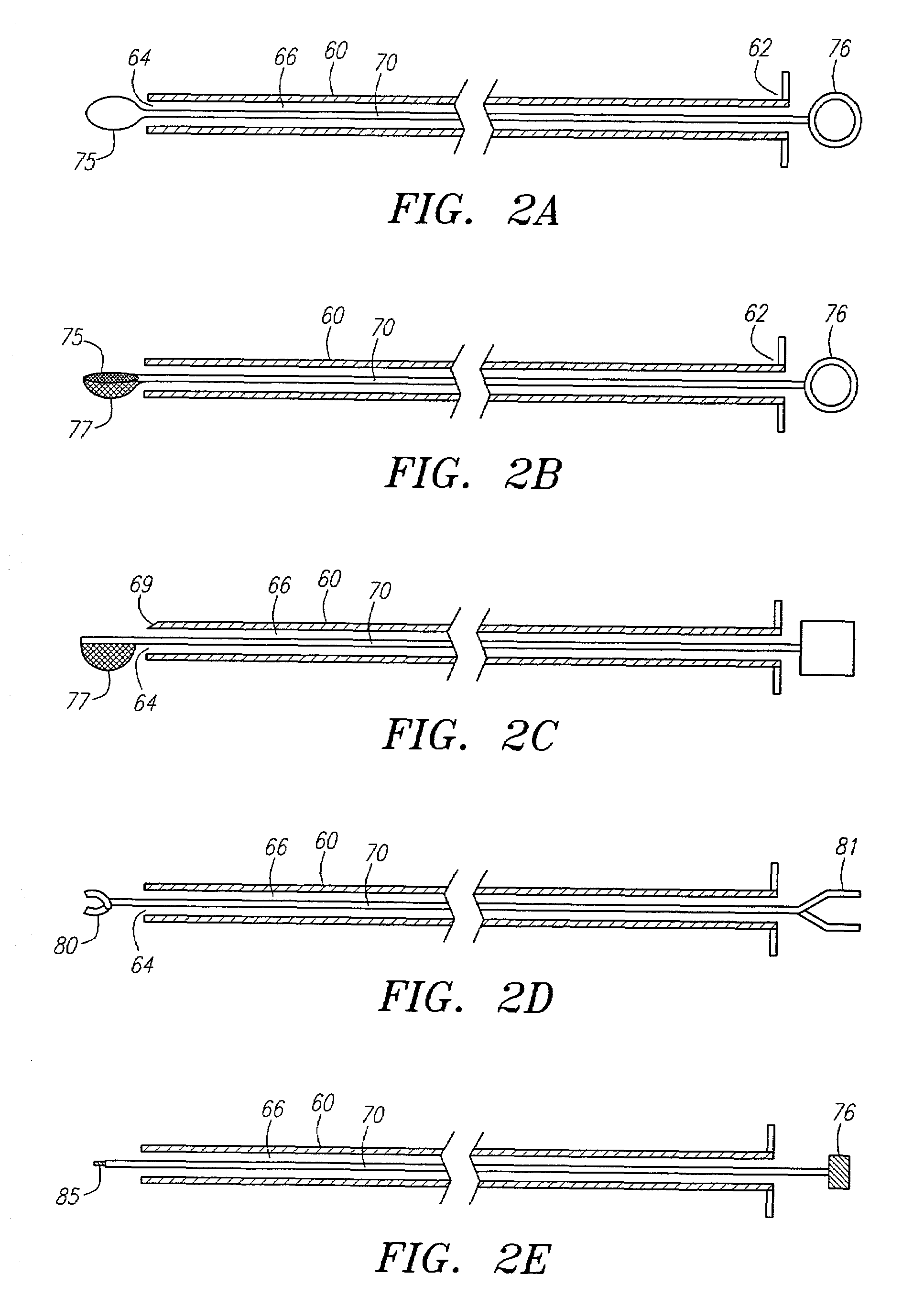Direct access atherectomy devices
- Summary
- Abstract
- Description
- Claims
- Application Information
AI Technical Summary
Benefits of technology
Problems solved by technology
Method used
Image
Examples
Embodiment Construction
[0026]The cannula systems described herein are useful for performing atherectomy inside a patient's vessel, e.g., the ascending aorta, the aortic arch, the descending aorta, the femoral artery, the iliac artery, the popliteal artery and cardiac tissues, e.g., the atrium, the aortic valves, and the mitral valves. FIG. 1A depicts an embodiment of a cannula system 1 having first lumen 10 communicating with proximal end 12 positionable outside a blood vessel 2, and port 15 at distal end 18 positionable inside the blood vessel 2, and second lumen 20 communicating with proximal end 22 positionable outside the blood vessel 2, and distal port 25 at distal end 28 positionable inside the blood vessel 2. Filter device 30 includes expandable filter 33 mounted at its distal end, and is inserted through lumen 10 to the interior of the blood vessel. Atherectomy catheter 50, which includes atherectomy assembly 55, is inserted through the second lumen 20 and port 25 to reach atheroma 100 inside the ...
PUM
 Login to View More
Login to View More Abstract
Description
Claims
Application Information
 Login to View More
Login to View More - R&D
- Intellectual Property
- Life Sciences
- Materials
- Tech Scout
- Unparalleled Data Quality
- Higher Quality Content
- 60% Fewer Hallucinations
Browse by: Latest US Patents, China's latest patents, Technical Efficacy Thesaurus, Application Domain, Technology Topic, Popular Technical Reports.
© 2025 PatSnap. All rights reserved.Legal|Privacy policy|Modern Slavery Act Transparency Statement|Sitemap|About US| Contact US: help@patsnap.com



